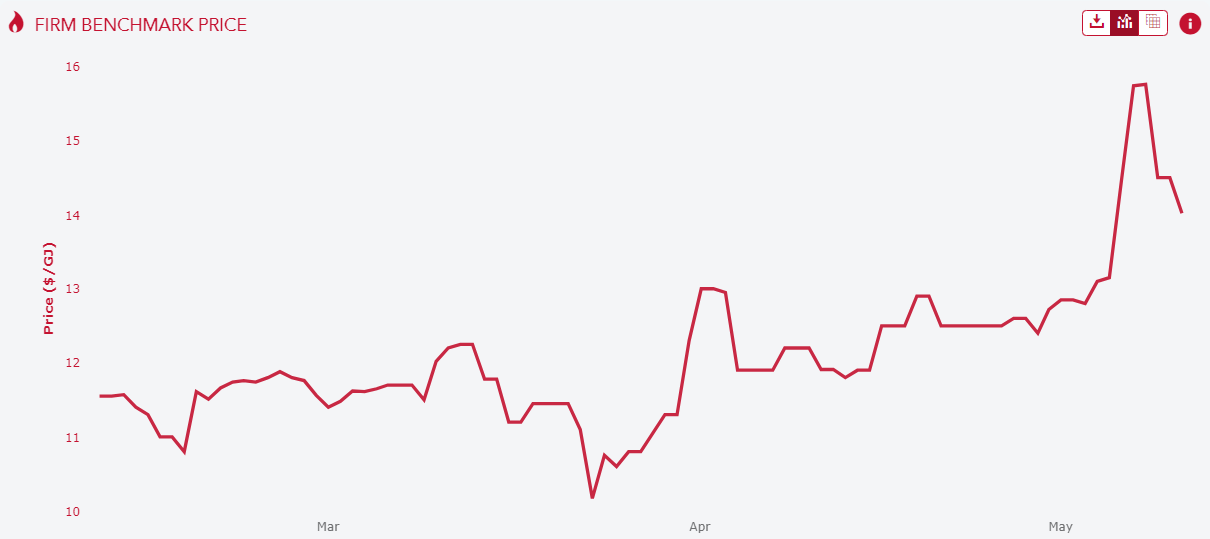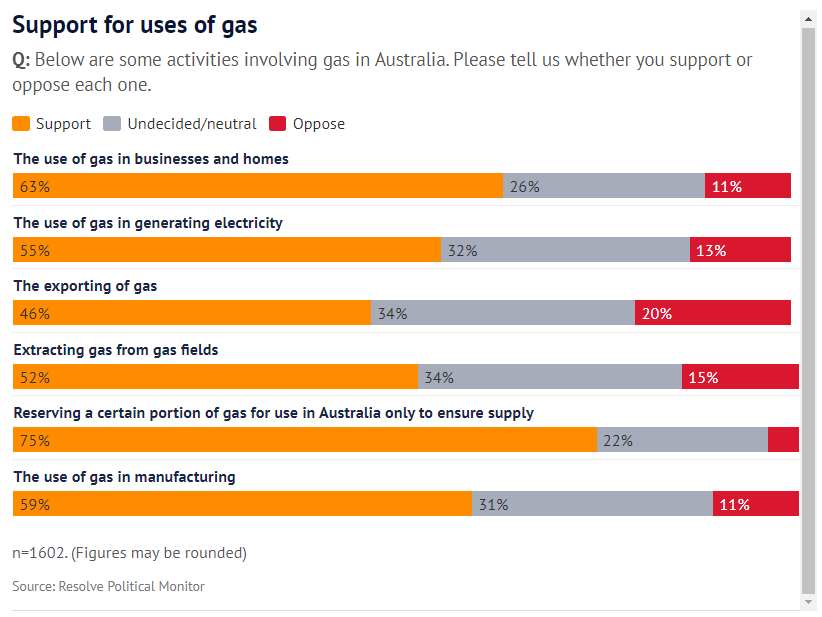Albo’s latest gas shock has pulled back a little:

Following the Asian gas price:

Not so much in electricity prices yet:

Resolve Political Monitor:
The poll found that 75 per cent of voters supported a domestic gas reservation policy to ensure a steady supply of gas to households and businesses, with 22 per cent of people undecided and just 4 per cent opposed.
The only state with a domestic gas reservation policy is Western Australia, which introduced a policy that reserves 15 per cent of gas for domestic use in 2006. Despite warnings at the time it would hamper the industry in that state, gas exports from WA have boomed.

It takes a particularly entrenched form of corruption to ignore political wins of this magnitude.
The sponsorship of energy think tanks like the Grattan Institute and the infiltration within political ranks by former energy executives such as Gary Gray helped resist the idea at the policy level.
Yet even that doesn’t explain it.
Energy policy in Australia is beholden to generations of venal politicians and broken party cultures that refuse to risk the rule of power in the name of the national interest.
By failing to domestically reserve gas, Labor, Liberal and Green are all guilty of promoting their interests ahead of clean and cheap energy.
The results have been clear in prices for since 2017, now they coming home to roost in reliability.
Australian power retailer Alinta has warned that the country’s energy transition is deteriorating, citing a major market disruption in New South Wales as evidence of the turmoil.
The Australian Energy Market Operator (AEMO) was forced to intervene in the NSW market and cap wholesale prices between May 8 and 15, following a series of shocks that sent costs into orbit.
The outages at coal plants in NSW, including the Eraring power station, limited NSW’s ability to import surplus power from interstate and further constrained the output of other generators, including wind farms and gas plants.
Experts say the pace of new energy capacity is not keeping up with retiring coal plants, making the energy system more fragile.
The turmoil in NSW preceded a report by AEMO, which warned Australia’s most populous state and Victoria were at increased risk of blackouts from this summer, extending to South Australia from 2026.
Mr Dimery said adding in ever more intermittent renewable energy without the capacity to back it up for days at a time was fraught.
How many crises will we need before the problem is fixed at the source?
Reserve East Coast gas now.

